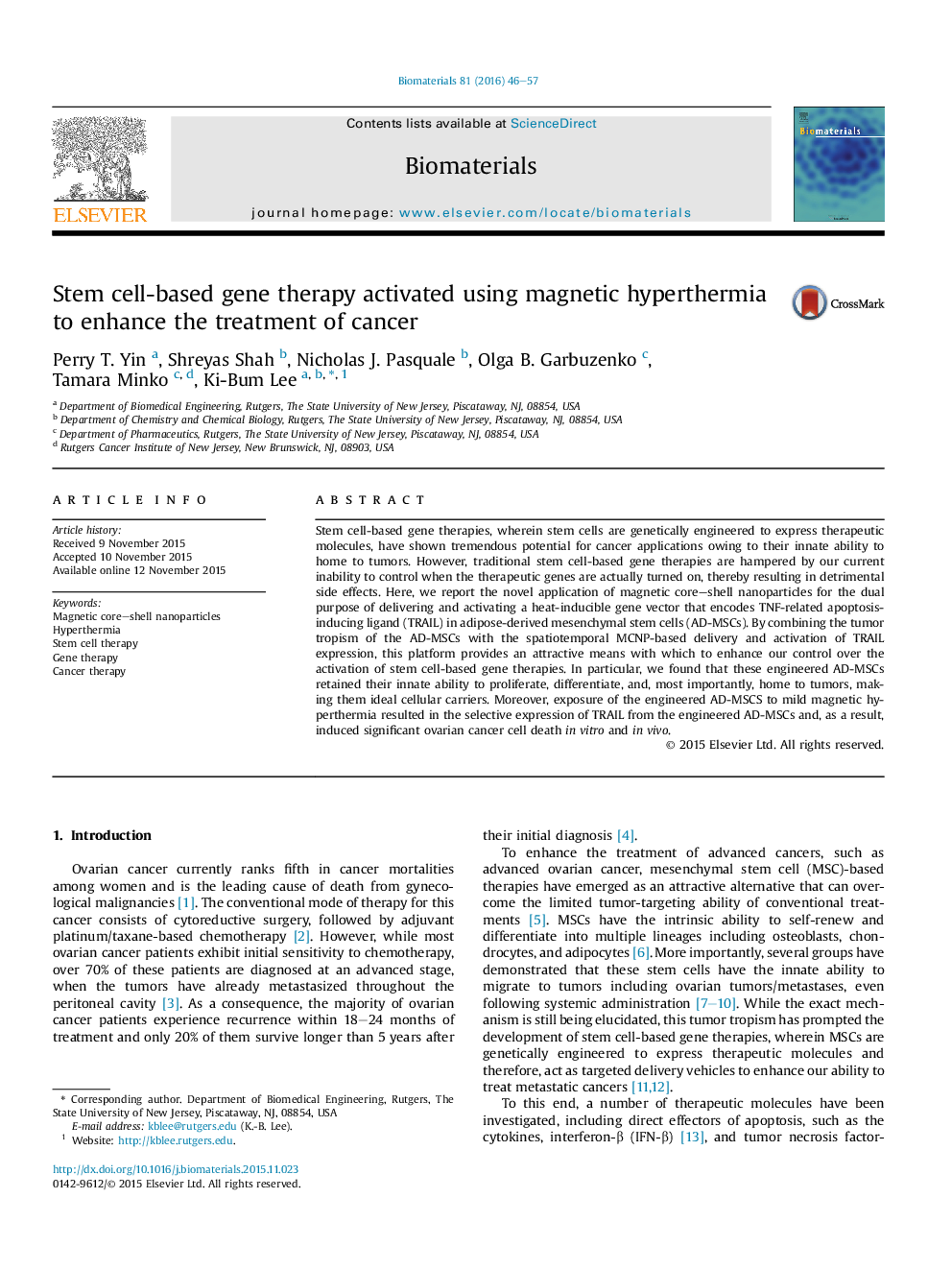| Article ID | Journal | Published Year | Pages | File Type |
|---|---|---|---|---|
| 5464 | Biomaterials | 2016 | 12 Pages |
Stem cell-based gene therapies, wherein stem cells are genetically engineered to express therapeutic molecules, have shown tremendous potential for cancer applications owing to their innate ability to home to tumors. However, traditional stem cell-based gene therapies are hampered by our current inability to control when the therapeutic genes are actually turned on, thereby resulting in detrimental side effects. Here, we report the novel application of magnetic core–shell nanoparticles for the dual purpose of delivering and activating a heat-inducible gene vector that encodes TNF-related apoptosis-inducing ligand (TRAIL) in adipose-derived mesenchymal stem cells (AD-MSCs). By combining the tumor tropism of the AD-MSCs with the spatiotemporal MCNP-based delivery and activation of TRAIL expression, this platform provides an attractive means with which to enhance our control over the activation of stem cell-based gene therapies. In particular, we found that these engineered AD-MSCs retained their innate ability to proliferate, differentiate, and, most importantly, home to tumors, making them ideal cellular carriers. Moreover, exposure of the engineered AD-MSCS to mild magnetic hyperthermia resulted in the selective expression of TRAIL from the engineered AD-MSCs and, as a result, induced significant ovarian cancer cell death in vitro and in vivo.
